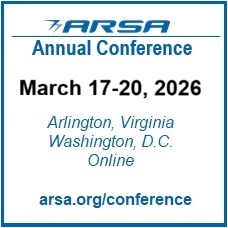New FAA Guidance Changes Definition Of Aviation Maintenance, ARSA Says
Alexandria, Va., Sept. 1, 2006–The Aeronautical Repair Station Association (ARSA) has asked the Federal Aviation Administration (FAA) to clarify several issues raised in recently released guidance supporting the drug & alcohol (D&A) program testing rule–primarily definitions of maintenance that conflict with other rules and industry’s common understanding.
“We are deeply concerned that these [guidance] documents will fundamentally alter the definition of maintenance,” the Association said in a letter sent August 30 to the FAA.
Determining whether work is defined, in regulatory terms, as “maintenance” is a critical part of complying with the FAA’s new D&A testing regulation scheduled to go into effect October 10. The D&A rules state that persons performing “safety-sensitive functions” for part 121 and 135 certificate holders–directly or by contract, at any tier–must be enrolled in a D&A testing program. Maintenance is listed as a safety-sensitive function.
ARSA, responding to its members’ needs and in cooperation with other industry organizations, has been working with the FAA as the agency develops guidance on how to comply with the rule. Unfortunately, the first set of guidance materials, released earlier this month, created more questions than it answered.
For example, FAA’s guidance says that cleaning seat covers is not maintenance because cleaning is a part of the overhaul process, and the overhaul itself–not its individual elements–constitutes maintenance.
ARSA pointed out several flaws in the agency’s reasoning. For example, inspection—which is also part of an overhaul—is defined as maintenance in Federal Aviation Regulations (FAR) section 1.1.
Also, manufacturer maintenance manuals contain instructions for cleaning seat covers. Improper cleaning could affect their flammability requirements, which could violate Federal Aviation Regulations (FAR) concerning returning articles to service (FAR 43.13(b)). Under this rationale, cleaning would be considered maintenance, because the provider must comply with part 43 when performing the activity.
“ARSA believes that the issue of seat cleaning illustrates why part 43 should be the starting point for any analysis of whether a function is maintenance, and not the nature of the action performed,” the Association said. “By focusing solely on the action performed, the guidance ignores the requirements of part 43, which provide appropriate direction: If the activity is part of a maintenance record, it is maintenance.”
ARSA’s interpretation request addressed several other concerns as well. Download a copy of the letter here (.pdf).
Since the new D&A rule’s compliance date is so close, the Association asked the FAA to expedite its response “to ensure that the industry has clear and useful guidance as it attempts to comply” with the regulation.
About ARSA
Founded in 1984, ARSA is the leading trade association devoted to serving civil aviation maintenance organizations. ARSA’s 700 members perform maintenance and alterations on behalf of U.S. and foreign air carriers and other operators worldwide. ARSA represents the interests of aircraft maintenance and alteration facilities before federal agencies in the U.S. and abroad. The Association promotes laws and regulations that establish reasonable aviation safety standards and encourages the development of clear, concise, consistent and uniformly applied regulatory guidance and interpretations.








